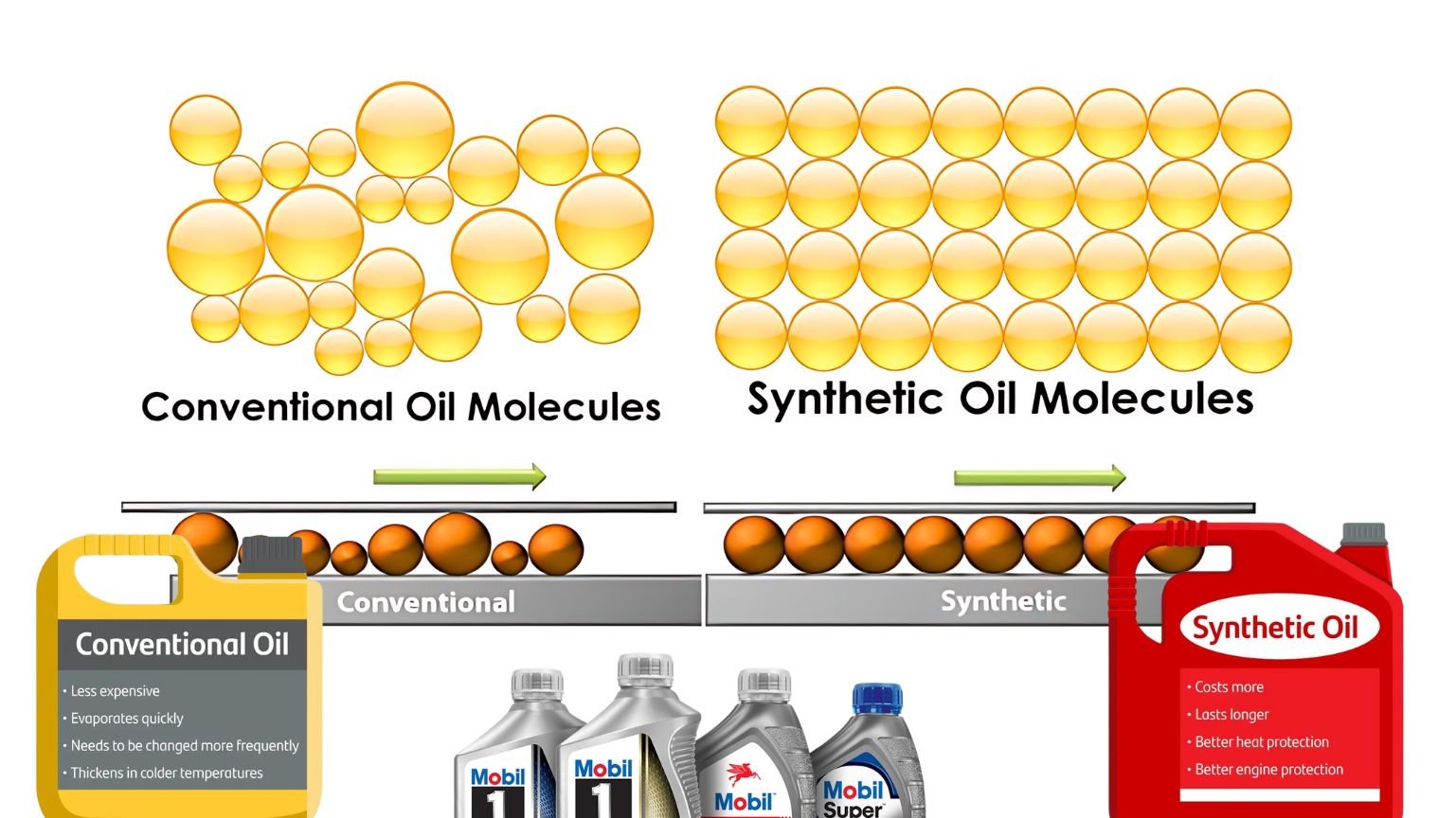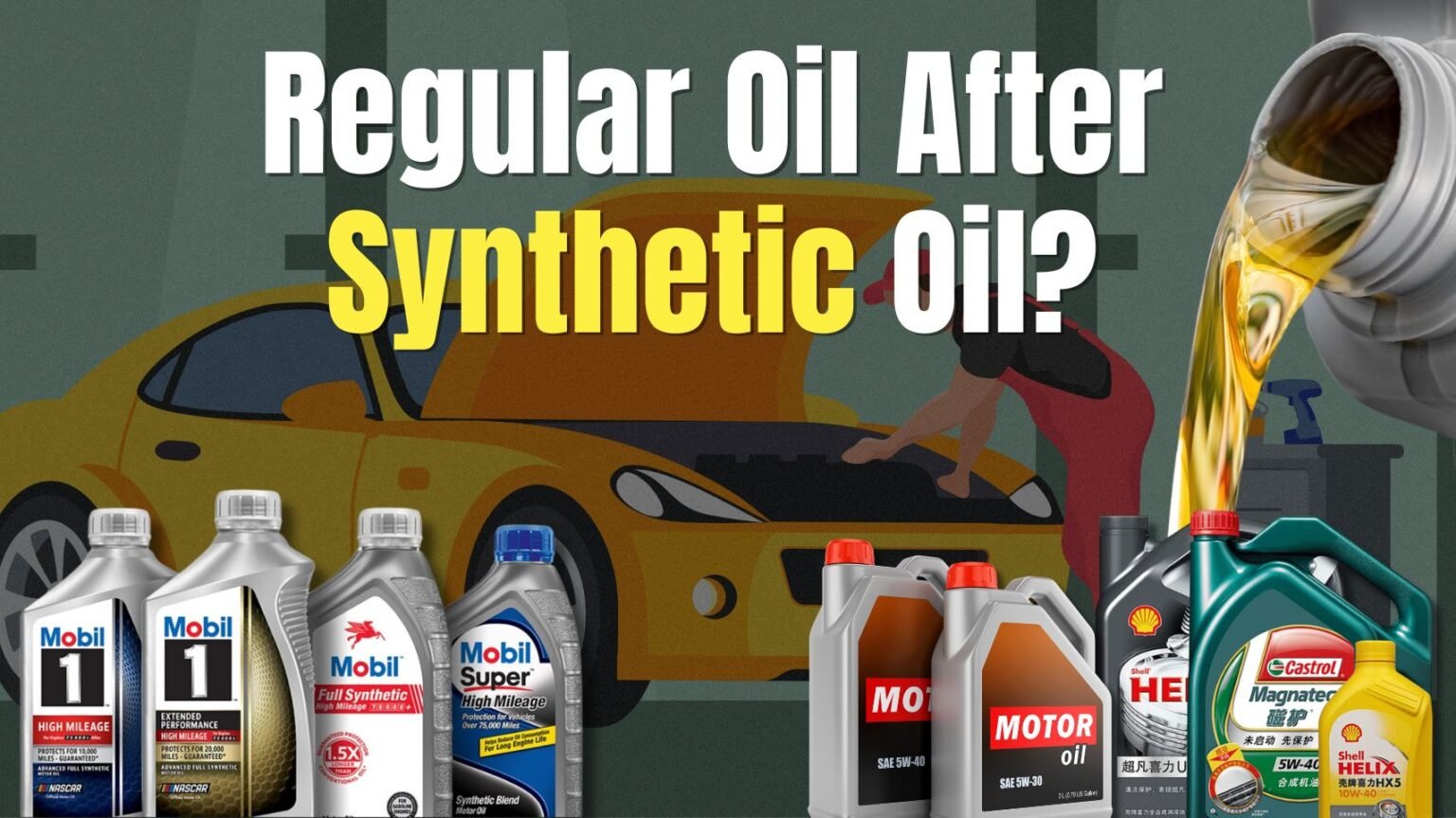Switching Regular Oil After Synthetic Oil Will it really affect your vehicle or just another myth?
Swapping to synthetic oil can be a blessing for the engine performance and its lifespan but many vehicle owners who have used synthetic oil want to know if they can switch back to Regular Conventional Oil but no matter how tempting it may sound to save a bit of money in your purse and go back to using the conventional oil like before, one must understand that it is not recommended in usual cases for various reasons. In this blog post we will look at the main reasons why you should or should not return to regular oil after synthetic oil for some period as well as potential consequences if so.
The Differences Between Regular Oil After Synthetic Oil
Before coming to a conclusion why one cannot simply get back to average oil, one must get the basic differences between synthetic and regular engine oils.
Synthetic oils are purposely made to perform and protect far better than regular oils. Molecular structures of synthetic oils are created from superior, man-made molecules with a more durable design that supplies superior lubrication and resistance to extreme temperatures, lower friction, and thermal breakdown. Regular oils, as they are produced from crude oil, look more erratic and sloppy, with naturally occurring molecules, which are refined through distillation processes.
Synthetic oils are made with advanced additive packages that improve their performance. These Additives are produced concurrently with the artificial base oil to offer additional security for your engine against fighting and wear-out and maintain their efficiency longer. Synthetic oils maintain their viscosity better at both moderate and extremely cold conditions, than regular oils.

The Risks of Switching Back to Regular Oil
Once you feel the benefits of synthetic oil, now ,you may want to save some money by switching back to regular lubricant. But, generally, this is not recommended by experts for the following reasons:
- Compatibility: Synthetic oils and regular oils have different chemical compositions and additive packages. If the mixing occurs, the problem of compatibility arises, which can lead to both the inefficiency of the additives and interaction in such a way that they are degraded, turning the mixture into substances which are considered harmful to the engine.
- Reduced parameters of lubricants: Synthetic oils are generally designed with enhanced lubrication and anti-wear additives that protect the most critical engine components and provide a boost to its functionality. Switching to ordinary oils will cause more wear due to the unprecedented friction which it cannot control.
- More sludge and deposits: Synthetic oils are better at keeping your engine clean and free of sludge and deposits. Switching back to standard oil could result in these contaminants to accumulate faster in the engine, which might result in your engine being suffering from efficiency, economy and perhaps damage and greater wear tear, ultimately reducing life span of the engine.
- Voided Warranty: Synthetic oil is recommended by many auto manufacturers, and others require it to maintain the warranty. Reverting back to standard oil from synthetic has the potential to void the guarantee given by manufacturers, making you responsible for any engine-related difficulties that arise in near future.
- Decreased fuel efficiency: Synthetic oils are made to reduce friction, which can lead to better fuel economy. Reverting to standard oil may result in a noticeable decrease in the fuel efficiency of your vehicle.
The Recommended Approach
If you have been using synthetic oil in your car, the best advice would be to use only this type of oil for your entire engine life . The protection and performance provided by synthetic oil are superior to those of regular oil, and therefore investing in a slightly more expensive but long-term investment will be more profitable. However, if you ever need to convert back to a conventional oil due to extraordinary conditions, you should still consider the advice of the owner’s manual or talk with a mechanic, because depending on a car model, you will have to take some preparatory steps to properly convert back.
Conclusion
While upgrading to the synthetic oil could improve your vehicle’s overall performance significantly, switching back to regular oil is not advised. This is due to the various chemical compositions, additive packages, and stability, etc. mixing the oils might be prone to risk and may easily result in possible incompatibility and extra drag and damage to the engine. This may reduce the lubrication concentration and worsen problems by increasing oil sludge and deposits. For optimal usage of your car, it is recommended that you utilise synthetic oil, benefit from the lubrication it offers, and safeguard the engine’s good health.

